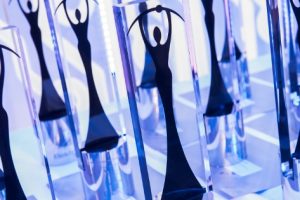 Make sure you are a part of the industry’s glittering gala evening and enter one or more categories for a chance to be recognised by the influencers and leaders of the electronics industry. It’s simple to enter – just complete the online form (see box ).
Make sure you are a part of the industry’s glittering gala evening and enter one or more categories for a chance to be recognised by the influencers and leaders of the electronics industry. It’s simple to enter – just complete the online form (see box ).
It is easy and free of charge to enter the Elektra Awards and there are no restrictions on who can enter – large or small, new or long-established companies all have an equal chance to impress the judges.
Our elite judges are experts in their fields from across the industry, representing young, fresh talent as well as well-established industry and business skills.
You can enter more than one category, so if you are unsure which is the best fit, you can submit the same entry to be considered for multiple categories.
For Campaign of the Year the judges will consider how a marketing campaign used business insights or intelligence and will assess quantifiable results. The award is open to both large and small budget campaigns, one-off activities and longer term strategies.
Distributor of the Year candidates should show that their distribution business achieved clear business milestones during the past 12 months. Judges will look for evidence of an effective commercial strategy, value and innovation (for instance in work practices, corporate management and technology).
Manufacturer of the Year aims to measure how your company adapts and responds to a dynamic and changing market. Can you show what it offers that makes it stand out from the competition?
In the Start-up Business of the Year category judges will look for evidence of building a business to be competitive in global markets.
Product-based awards
In the product-based awards the judges are looking for game-changers, where a design breaks new ground or adds an interesting twist to the functionality of an existing technology.
Excellence in Product Design for High-Reliability Systems – be prepared to describe the operation of innovative elements in the product, how it is integrated and whether the technology has been certified. Similar qualities will be expected to be revealed in the Excellence in Product Design for Medical category.
Judges assessing contenders for the Internet of Things Product Innovation Award will evaluate semiconductor reference designs or system level products for in particular support of good IoT security stewardship.
The LED Lighting Product of the Year will be judged on how their semiconductor lighting products and technical capabilities differentiate the products entered from competitor products.
Differentiation from competitor products will be a key consideration in judging for all the following product-based categories, where judges will also assess technical innovation, user benefit(s) and commercial success:
- Passive and Electromechanical Product of the Year
- Power System Product of the Year
- Semiconductor Product of the Year – Analogue
- Semiconductor Product of the Year – Digital
- Test Product of the Year.
In the Automotive Electronics Innovation and Excellence Award judges will also look for evidence of how a product design has had a significant impact in its market, examining how it introduced new capabilities or significant improvements.
Candidates for the Design Team of the Year, open to both OEMs and design house teams will be assessed for technology, working practices and corporate management initiatives.
For the Educational Support Award the judges will evaluate the support a company has given to schools, colleges or universities and asses the usefulness and achievements that have resulted from their involvement.
Entrants who started their careers in the past five years will be judged for the Rising Star of the Year Award on both their career trajectory and their aspirations to contribute to the industry.
Judging for the Design Tools and Development Software Award will look for evidence of technical capabilities which differentiate the entry or are likely to inspire others.
The closing date for entries is 16 August 2019. To enter click here
Meet the judges
Electronics Weekly is indebted to the judges for their contributions in both time and expertise. They bring many years of experience across the electronics industry, representing engineers, strategists, R&D and business.
- Graham Curren – CEO, Sondrel
- Stewart Edmondson – CEO of the UK Electronics Skills Foundation (UKESF)
- Calum Finn – process engineering manager, Raspberry Pi
- Adam Fletcher – chairman of the Electronic Component Supply Network (ecsn)
- Stephen Furber – ICL professor of computer engineering, Manchester
- Robert Green – research engineer at CMR Surgical
- Tony King-Smith – executive advisor at Altomotive
- Robert Nowill – chairman of Cyber Security Challenge UK
- Sam Presley – lead inspiration engineer, RS Components
- Jude Pullen – technologist
- Andy Sellars – Strategy Director, CSA Catapult
- Rahim Tafazolli – regius professor of electronic engineering at the University of Surrey
- Roger Thornton – principal hardware engineer, Raspberry Pi
- Tim Wiles – Senior Development Scientist, Peratech
 Electronics Weekly Electronics Design & Components Tech News
Electronics Weekly Electronics Design & Components Tech News


